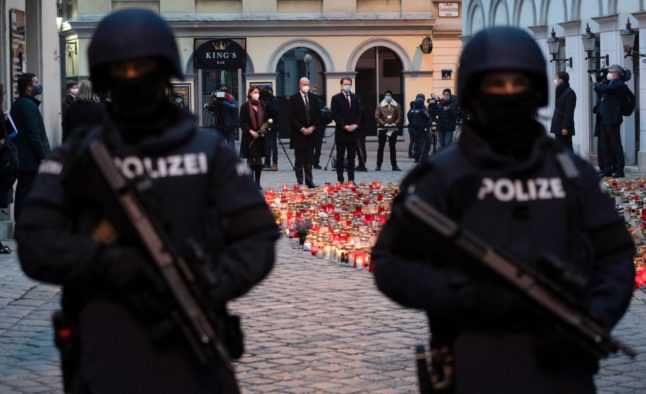Nine suspected Chechen jihadists who were arrested in Austria on Wednesday had planned to use this route.
"The conflict in Syria is attracting foreign fighters from all over Europe to Austria. The route to Syria is simple and safe,” a report from Austria’s Federal Agency for State Protection and Counter Terrorism (BAT) said.
The report stated that Austria is used as a place for recruiting and organising European jihadists who plan to travel through the Western Balkans to Syria.
Around a quarter of people travelling from Austria to Syria are Austrian nationals, "who have family members in Southeast Europe and the Western Balkans."
As many as 130 people from Austria are believed to be fighting as jihadists abroad. More than half of Austria's jihadists originally come from the Caucasus region and have a valid residence permit in Austria. The rest are mainly Bosnian and Turkish-born.
Turkey plays a significant role in Islamist networks – as it is relatively easy to cross the border into Syria, and has links to the controversial Millî Görüş movement, which is also active in Austria.
The BAT report notes that jihadists who return to Austria represent a particular threat: "After returning from the war zone with battle experience, having had traumatic experiences and associated behavioural changes, and having deepened their radical beliefs present a significant security risk for Austria."
The worry is that they will set up centres for recruiting new jihadists.
Der Standard writes that Austria has not been very successful in introducing a strategy for de-radicalising returning jihadists. A telephone hotline for people wanting to leave a terrorist organisation has been repeatedly postponed, and there is no social programme for jihadist ‘drop-outs’.
John R. Schindler, a professor of national security affairs at the US Naval War College, writes in a recent blog post that “for years, Vienna has served as the de facto base for Islamist extremists from Southeastern Europe, a place to recruit, raise and hide funds, and radicalize, thanks to Austria’s permissive laws and weak enforcement mechanisms. It’s an exceptional terrorist or Salafi radical in Bosnia who has not spent some time in Austria.”



 Please whitelist us to continue reading.
Please whitelist us to continue reading.
Member comments